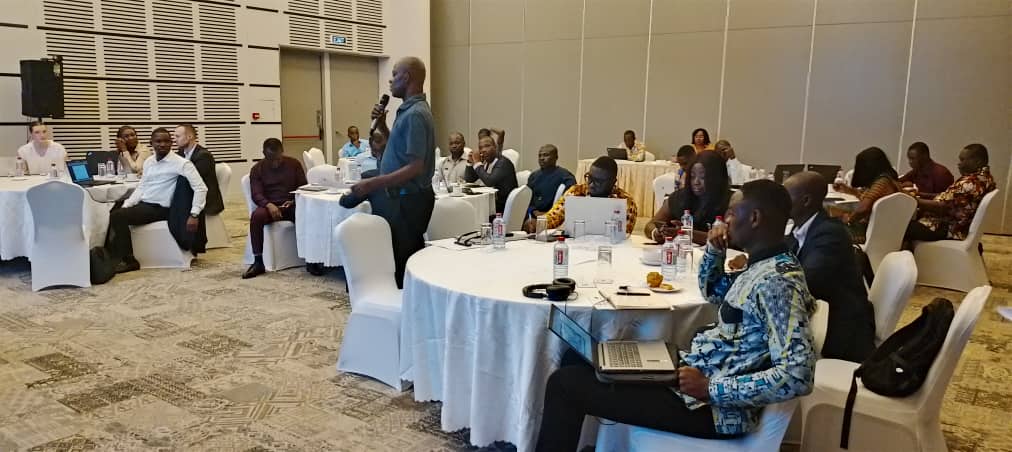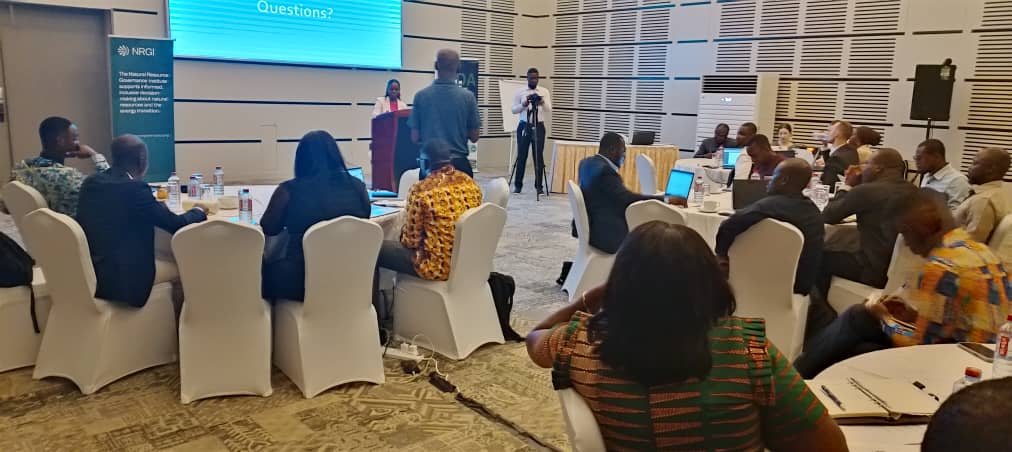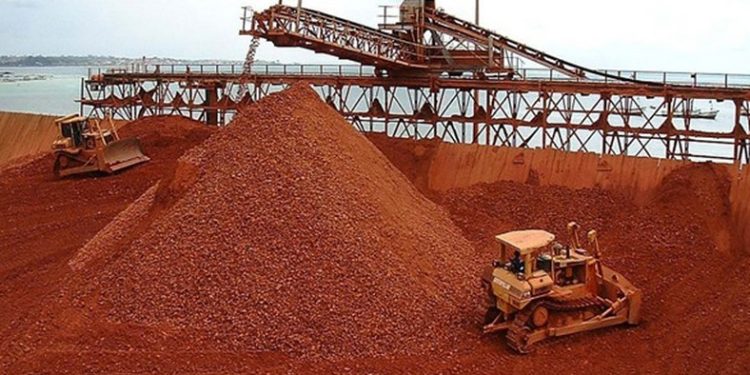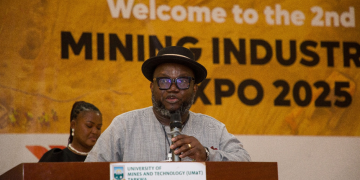CEDA Assesses Strengths and Weaknesses of Ghana’s Bauxite Agreement
Ghana’s bauxite agreement with Ashanti Bauxite Limited, a joint venture between the Ghana Integrated Aluminium Development Corporation (GIADEC) and Rocksure International Limited, has drawn scrutiny from industry experts and analysts.
At a recent forum organized in partnership with the Natural Resource Governance Institute (NRGI) and supported by the Foreign Commonwealth and Development Office (FCDO), Samuel Bekoe, Executive Director of the Centre for Extractives and Development Africa (CEDA), undertook a comprehensive Strengths, Weaknesses, Opportunities, and Threats (SWOT) analysis of the agreement, highlighting its potential benefits and risks.
Touching on the strengths of the agreement, Mr Bekoe emphasized that the agreement incorporates enhanced fiscal terms, with an eight percent royalty rate and a thirty percent state participation, ensuring a higher government take compared to previous mining contracts.

Additionally, the agreement mandates progressive domestic processing requirements, aligning with Ghana’s broader industrialization goals. The commitment to community development is also notable, with an allocation of one percent of gross revenue exceeding statutory requirements.
Structurally, the agreement establishes a public-private partnership model, with GIADEC holding a thirty percent stake and Rocksure International taking a majority seventy percent interest. This approach is designed to leverage private sector expertise while maintaining significant government oversight.
However, the agreement is not without its weaknesses. Mr Bekoe noted that transparency and anti-corruption safeguards in the contracting process remain limited, raising concerns about governance and accountability.
Local content provisions, while present, lack specific targets and accountability mechanisms, potentially undermining efforts to maximize benefits for Ghanaian businesses.
Furthermore, the absence of a detailed implementation framework for beneficiation commitments poses a risk to achieving the intended value addition. The agreement also falls short in terms of environmental, social, and governance (ESG) reporting, with limited independent verification mechanisms to ensure compliance with sustainability standards.
Beyond the inherent strengths and weaknesses, the agreement presents significant opportunities for Ghana’s economic transformation. If effectively implemented, it could facilitate the development of an integrated aluminium value chain, spanning from mining to the production of finished products.
This would promote technology transfer and skills development, particularly through the establishment of a local refinery. Additionally, the infrastructure investments required for the project have the potential to stimulate broader economic growth beyond the mining sector, creating employment opportunities across multiple industries.
Despite these opportunities, the agreement is not without risks. The technical and economic viability of domestic processing remains uncertain, particularly given the energy-intensive nature of aluminium production. Ghana’s current energy constraints and cost challenges could hinder the competitiveness of locally refined aluminium.

Moreover, without robust environmental management systems, the extraction and processing of bauxite could have significant ecological impacts. Social risks also persist, as weak community engagement mechanisms could lead to tensions between local populations and project stakeholders.
Ghana’s mining sector remains a crucial pillar of its economy, contributing significantly to government revenue, employment, and foreign exchange earnings. In 2021, the sector accounted for 7.6 percent of the country’s Gross Domestic Product (GDP), generating a total mineral revenue of $6.6 billion. Gold remains the dominant mineral, accounting for 90 percent of total export revenue, while bauxite production has been steadily increasing, with a 24.1 percent rise from 773,213 tonnes in 2022 to 959,601 tonnes in 2023.
With an estimated 900 million metric tonnes of bauxite reserves, Ghana is well-positioned to become a significant player in the global aluminium industry.
Since the 1960s, successive governments have aspired to transition from exporting raw bauxite to establishing an integrated aluminium industry. The formation of GIADEC is a renewed attempt to realize this vision by promoting local refining and processing. However, to ensure that Ghana fully capitalizes on its bauxite reserves, the government must prioritize transparency, accountability, environmental sustainability, and local content development.
While efforts have been made to improve contract transparency, revenue optimization, and environmental safeguards, gaps remain. Many past agreements have failed to deliver the expected economic benefits due to weaknesses in the fiscal framework and deficiencies in the environmental and social governance regime.
The success of the current bauxite agreement will depend on the government’s ability to address these structural challenges. Effective oversight, coupled with stringent regulatory enforcement, will be crucial in ensuring that Ghana derives maximum value from its bauxite resources. If well-executed, the agreement has the potential to serve as a catalyst for industrial transformation, positioning Ghana as a key player in the global aluminium market while fostering sustainable economic development.








